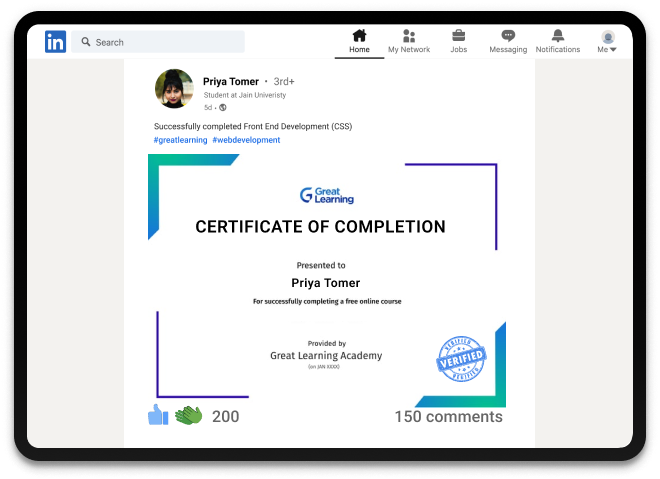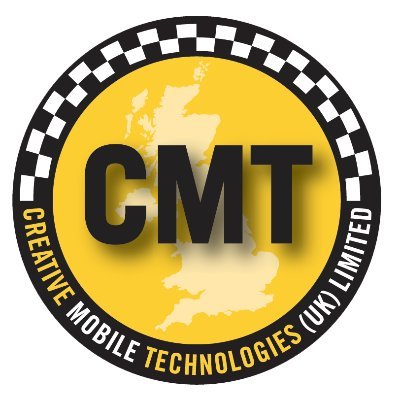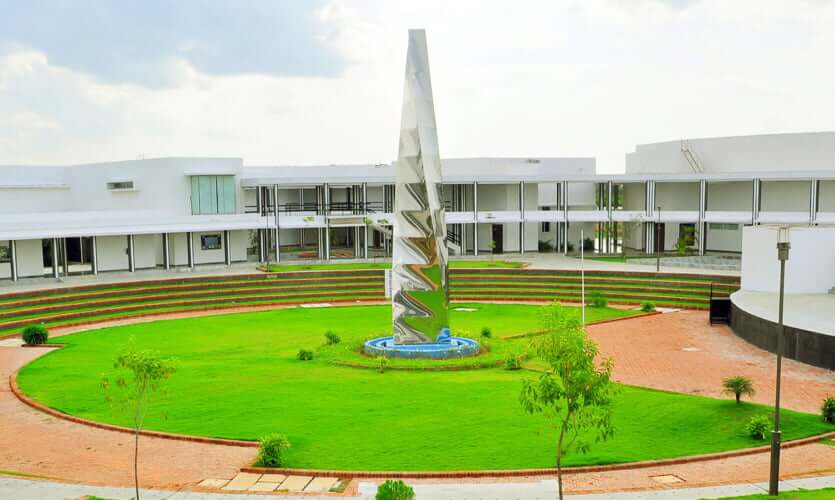Supply Chain Management
Free Supply Chain Management Course for Beginners
Gain essential skills in optimizing supply chain processes and driving business growth with our Supply Chain Management course. From procurement to distribution, learn techniques to streamline operations and boost efficiency.
What you learn in Supply Chain Management ?
About this Free Certificate Course
Equip yourself with the expertise demanded by companies worldwide in manufacturing and supply chain logistics through our Supply Chain Management course. The course is tailored to provide a robust foundation in this dynamic field; our program offers an immersive exploration of the intricacies and challenges inherent in today's global economy. After the supply chain management free courses completion, you will understand the complex workings of supply chains and excel in diverse professional environments. Ideal for aspiring professionals who want to launch their careers and individuals already engaged in Supply Chain Management roles.
Delve into the historical evolution of supply chain strategies and their contemporary relevance in business operations. Uncover core components and processes, from procurement to distribution, and gain insights into drivers shaping supply chain dynamics, including globalization and technological advancements. Engage with real-world case studies and projects and get effective insights into effective supply chain strategies. From nurturing robust supplier relationships to navigating logistical challenges, our supply chain management free online course with certificate course equips you with the knowledge and skills necessary to thrive in supply chain management.
You can enroll in the Best Management courses and earn a degree online from a renowned university. Join our learning community today and explore your interests with millions of learners worldwide.
Course Outline
In this module, you will know about the agenda and an overview of Supply chain networks across the globe.
In this module, you will learn about the historical supply chain networks and the modifications it has gone through over the years.
This module gives you an overview of various elements of the supply chain network and how it's transforming the Supply chain networks.
This module talks about the two main drivers in the supply chain network that are- responsiveness and efficiency. Furthermore, you will also know about the various loopholes in the logistics management.
With this course, you get
Free lifetime access
Learn anytime, anywhere
Completion Certificate
Stand out to your professional network
1.5 Hours
of self-paced video lectures
Frequently Asked Questions
What is supply chain management (SCM)?
Supply chain management (SCM) is the process of planning, implementing, and controlling the flow of goods, services, information, and finances across the entire supply chain, from raw material suppliers to end consumers.
Why is supply chain management important?
Supply chain management is essential because it helps organizations optimize efficiency, reduce costs, minimize risks, improve customer satisfaction, and enhance competitiveness in the global market.
What are the key components of a supply chain?
The key components of a supply chain include suppliers, manufacturers, distributors, retailers, customers, and the various processes, systems, and information flows that connect them.
What are the common challenges in supply chain management?
Common challenges in supply chain management include demand fluctuations, inventory management, transportation issues, supplier reliability, data visibility, and supply chain disruptions.
How can companies improve supply chain visibility?
Companies can improve supply chain visibility by implementing advanced technology, using data analytics, and establishing collaborative relationships with suppliers and partners.
Success stories
Can Great Learning Academy courses help your career? Our learners tell us how.And thousands more such success stories..
Related Management Courses
Popular Upskilling Programs
Explore new and trending free online courses
Relevant Career Paths >
Supply Chain Management
Supply chain management (SCM) is the process of managing the flow of goods and services from the supplier to the end-user or customer. It involves the coordination and management of all the activities, including planning, sourcing, production, transportation, and delivery of products or services. Effective supply chain management can improve the efficiency of the supply chain and help companies reduce costs, increase revenue, and enhance customer satisfaction. In this article, we will discuss the different aspects of supply chain management.
Planning
Planning is the first stage of supply chain management, which involves forecasting the demand for the products or services and developing a strategy to meet that demand. In this stage, companies set targets, develop production plans, and identify the resources required to execute those plans. Effective planning helps companies to manage the supply chain efficiently and minimize costs.
Sourcing
Sourcing involves the selection of suppliers who can provide the required materials or products. It includes identifying potential suppliers, evaluating their capabilities, negotiating prices, and entering into contracts. Effective sourcing can help companies to secure the required materials at the right price and quality, and ensure timely delivery.
Production
Production involves the manufacturing or assembly of products. It includes the management of production schedules, inventory levels, and quality control. Effective production planning can help companies to optimize the use of resources, reduce lead times, and improve product quality.
Transportation
Transportation involves the movement of goods from one location to another. It includes the selection of transportation modes, such as air, sea, or road, and the management of transportation schedules, routing, and tracking. Effective transportation management can help companies to reduce transportation costs, improve delivery times, and enhance customer satisfaction.
Warehousing
Warehousing involves the storage of goods before they are transported to the customers. It includes the management of inventory levels, order picking, and packing, and the maintenance of warehouse facilities. Effective warehousing can help companies to optimize inventory levels, reduce lead times, and improve order fulfillment.
Distribution
Distribution involves the delivery of goods to the end-users or customers. It includes the management of delivery schedules, routing, and tracking, and the management of customer orders and inquiries. Effective distribution management can help companies to improve order fulfillment, reduce delivery times, and enhance customer satisfaction.
Technology
Technology plays a crucial role in supply chain management. It includes the use of information technology systems, such as enterprise resource planning (ERP), customer relationship management (CRM), and supply chain management software. These systems can help companies to streamline their supply chain operations, improve communication, and reduce costs.
Risk management
Risk management involves identifying and mitigating the risks that can affect the supply chain. It includes the management of supply chain disruptions, such as natural disasters, supplier bankruptcies, and transportation disruptions. Effective risk management can help companies to reduce the impact of supply chain disruptions, improve supply chain resilience, and protect their reputation.
Conclusion
Supply chain management is a critical aspect of business operations that involves the coordination and management of all the activities, from planning to delivery. Effective supply chain management can help companies to reduce costs, increase revenue, and enhance customer satisfaction. By focusing on planning, sourcing, production, transportation, warehousing, distribution, technology, and risk management, companies can optimize their supply chain operations and gain a competitive advantage in the market.











































.jpg)








